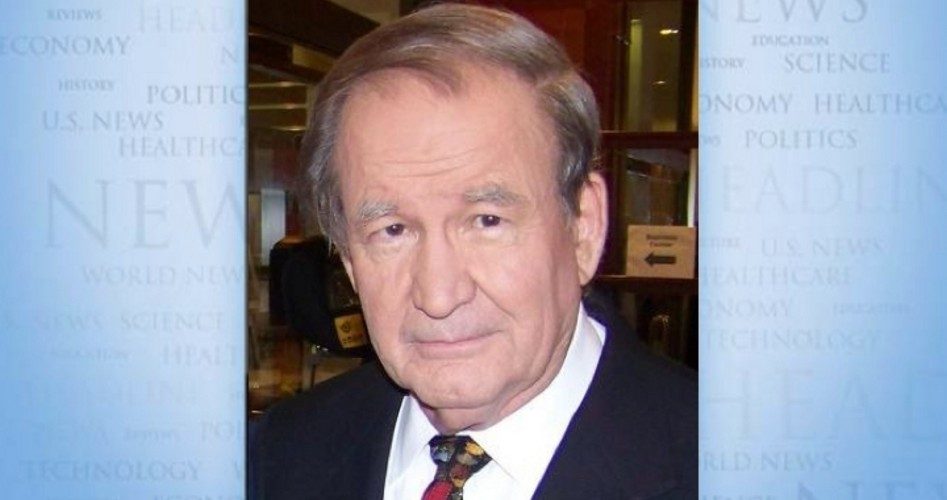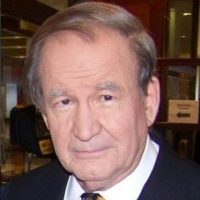
The Democrats’ drive to defeat Neil Gorsuch is the latest battle in a 50-year war for control of the Supreme Court — a war that began with a conspiracy against Richard Nixon by Chief Justice Earl Warren, Justice Abe Fortas and Lyndon Johnson.
By June 1968, Nixon, having swept his primaries, was cruising to the nomination and probable victory in November.
The establishment was aghast.
Warren’s bitterness toward Nixon dated to their California days. Sen. Nixon had worked behind the scenes for Ike’s nomination in 1952, though Gov. Warren was California’s favorite son. Warren had been crushed and humiliated — but Nixon was rewarded with the vice presidency.
Now, 16 years later, the chief justice was ready to step down, but desperately did not want his nemesis Nixon choosing his successor.
So, Warren and LBJ colluded in a plot. Warren announced his resignation from the court contingent on Senate confirmation of his successor. LBJ then named Warren’s ally and his own longtime crony, Fortas, to succeed Warren.
The fix was in. Nixon was boxed, and adopted a posture of benign neutrality on Fortas’ elevation, having been warned by future Secretary of State Bill Rogers that he would be accused of anti-Semitism if he blocked the first Jewish chief justice.
With Nixon’s knowledge, some of us on his staff ignored his neutrality posture and urged Senate conservatives to block Fortas.
Foremost among these was Strom Thurmond, who needed little prodding, and who was provided with Flaming Creatures, a graphic film of transvestite sex which Fortas, alone among the nine justices, had deemed acceptable for public viewing.
Senators were invited to a closed room for a screening. Some walked out wobbly. And as I told friend Sim Fentress of Time, the “Fortas Film Festival” was going to do in our new chief justice.
And so it did. Fortas was rejected in early October. In May 1969, President Nixon named Judge Warren Burger to succeed Earl Warren.
By that May also, Attorney General John Mitchell had learned that Fortas was on a $20,000-a-year secret retainer from swindler Louis Wolfson. Mitchell went to see Warren to suggest that his friend Abe resign, rather than be impeached. Fortas got the message.
Now, with a second vacancy, Nixon, to honor his promise to select a Southerner, chose Harvard Law grad and Chief Judge of the 4th Circuit Clement Haynsworth, the youngest chief judge in the nation.
Joe Rauh, counsel for the Leadership Conference on Civil Rights, instantly branded Haynsworth a “hard-core segregationist” and liberal Democrats painted him as a grifter steeped in petty corruption, whose court decisions were steered by his stock portfolio.
This was all trash talk. Haynsworth had released black militant H. Rap Brown from jail, without requiring him to post bail, and ruled that lawyers for black defendants had a right to discover whether jurors belonged to any organizations known for bias against blacks.
No matter. Haynsworth was depicted as a corrupt and racist judge and liberal Democrats and Rockefeller Republicans united to vote him down. But while painful to the judge, his vilification by the left had split the nation along a new fault line.
Nixon’s defiant response: He sent another Southern judge up to the Senate, G. Harrold Carswell. Less distinguished than Haynsworth, Carswell got the same treatment. In a statement he had me write, Nixon tore into the Senate for an “act of regional discrimination” against the South.
While losing Beltway battles, we were winning the bigger war.
Nixon then, fatefully, sent up a third nominee, Judge Harry Blackmun of Minnesota, who was approved 94-0.
Suddenly, in 1971, there were two more openings, as Justices Hugo Black, FDR man and former Klansman, and John Harlan resigned.
Nixon called to tell me he was sending up the first woman, a state judge from California, along with an Arkansas bond lawyer.
The heart sank. But Divine Providence intervened.
The American Bar Association voted 11-1 that Mildred Lillie was “not-qualified” and Herschel Friday got a split decision — six “not-qualified” votes and six “barely qualified.”
Panic ensued. Nixon swiftly pivoted to Lewis Powell, ex-head of the ABA, and William Rehnquist, a brilliant young conservative and legal scholar, whom Reagan would elevate to chief justice when Burger retired.
Three days after Nixon’s second inaugural, in Roe v. Wade, written by Blackmun, the court declared the right to an abortion had been hidden in the Constitution, though it had been a crime in every state when Earl Warren was appointed by Ike.
All doubt was now removed. The Supreme Court was using its right to declare what the law says and what the Constitution means — to reshape America in the image of Earl Warren and his judicial clones.
Realization that these were now the stakes, and power the issue, is the reason why Reagan nominee Robert Bork was savaged, and Bush I nominee Clarence Thomas was brutalized.
Behind the hostility to the mild-mannered and decent Neil Gorsuch lies the same malevolence that lynched Clement Haynsworth.
Photo of Patrick J. Buchanan: By Bbsrock – Own work, CC BY-SA 3.0, https://commons.wikimedia.org/w/index.php?curid=3369020
Patrick J. Buchanan is the author of a new book, out in May, Nixon’s White House Wars: The Battles That Made and Broke a President and Divided America Forever. To find out more about Patrick Buchanan and read features by other Creators writers and cartoonists, visit the Creators website at www.creators.com.
COPYRIGHT 2017 CREATORS.COM



